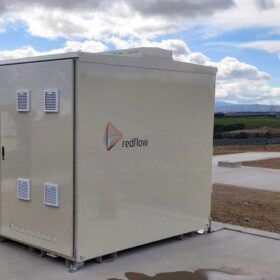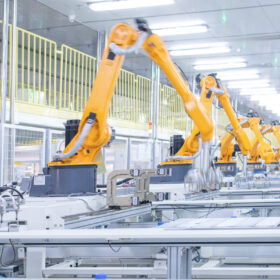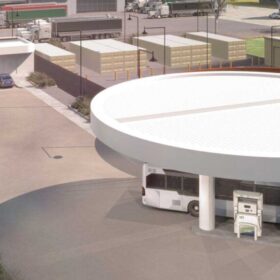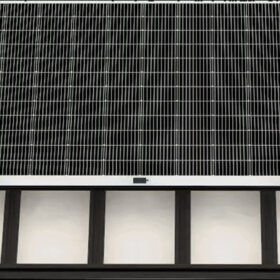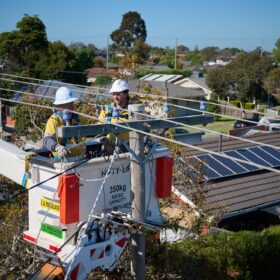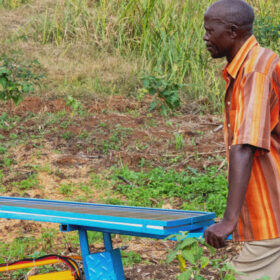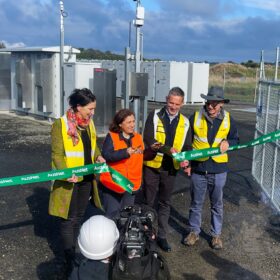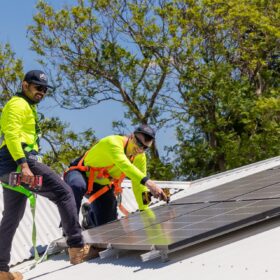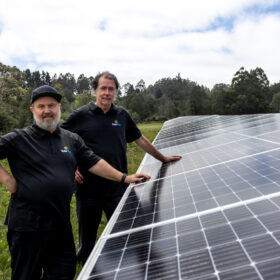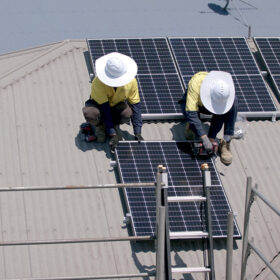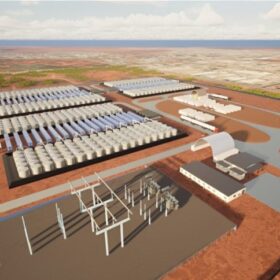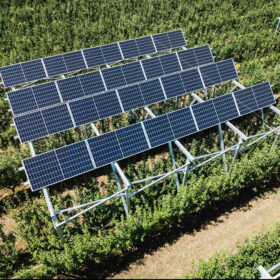Horizon puts battery technologies to test at regional WA microgrids
Western Australian regional energy provider Horizon Power will trial two novel long-duration energy storage technologies – including a zinc-bromine flow battery provided by Queensland manufacturer Redflow – as it seeks to identify new energy storage solutions for off-grid communities dealing with high levels of solar and extreme weather.
JinkoSolar claims top spot in 2023 PV module shipment rankings
Chinese manufacturer JinkoSolar says its solar module shipments reached 78.5 GW in 2023. This year, it says it hopes to sell up to 110 GW of panels.
Rooftop solar on Lion Energy’s radar for Queensland hydrogen hub
Australian oil and gas developer Lion Energy is considering utilising rooftop solar to help power an integrated green hydrogen generation and distribution facility approved for the Port of Brisbane in Queensland.
Sunman unveils 520 W glass-free solar panel with 19.3% efficiency
The new panel has a white backsheet and a temperature coefficient of -0.34/C. It weighs 4.1 kg per m2 and, according to the manufacturer, supports all types of installation methods, including roof adhesive and removal mechanical mounting.
Victorian DNSPs explore grid flexibility solution
Victorian distribution network service providers CitiPower and Powercor have partnered with United Kingdom-based software provider Piclo which is to deliver a cloud-based digital marketplace platform designed to improve grid flexibility.
Survey finds after-sale support key to boosting off-grid solar
A new survey from US-based impact measurement company 60 Decibels shows off-grid energy customers are currently facing a series of challenges such as product affordability, gender inequality, customer support, further investment in minigrids, and over-indebtedness. The report, however, reveals that most users say the quality of their lives “very much improved” thanks to off-grid PV.
Renewable energy projects to enjoy faster approval in Victoria
Premier Jacinta Allan today announced that the Victorian government will accelerate planning approvals for renewable energy projects. The move is meant to ensure that projects that bring energy prices down can come online with greater speed.
Interview: Guiding consumers to make smart solar decisions
A new guide is hoping to point Australian households in the direction of the right solar system for their home, today and into the future. Mike Roberts, from the UNSW, helped create the Solar Consumer Guide and smart tools like SunSPOT and explained how they work.
SolarPlus launches its latest generation of ‘smart energy simulator’ software
New software released to serve both installers and consumers. The software aims to recommend optimal solar panel configuration and use of the solar energy by the household.
SafeWork NSW launches blitz on rooftop solar installations
The New South Wales workplace health and safety regulator has commenced a compliance blitz focusing on the safe installation of rooftop solar systems with inspectors to ensure business owners are checking on the safety of subcontractors.
